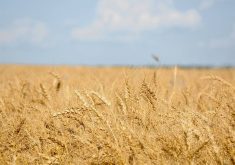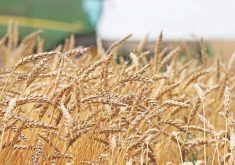A number of grain grading and variety classification changes take effect Aug. 1, the first day of the new 2014-15 crop year, the Canadian Grain Commission (CGC) said in a news release.
Producer cars also must now be ordered online, although farmers still have the option of ordering via fax. The new online ordering system was launched July 14.
Here’s a list of the changes:
• A tolerance of 0.5 per cent for fusarium damage in Barley, Canadian Western (CW) Food.
Read Also

New Syngenta fungicide targets anthracnose, white mould, Ascochyta blight
Lentil growers in Canada have a new option for controlling three major disease threats to the crop.
• Updated tolerances of 0.02 per cent ergot and 0.02 per cent sclerotinia for No. 1 and No. 2 Wheat, CW Amber Durum.
• Revised grade schedule for Oats, CE to bring CE and CW grade schedules closer together.
• CDC Falcon moves to the Canada Western General Purpose class from the Canada Western Red Winter class.
• New moisture meter conversion tables for use with Model 919/3.5 and Model 393/3.5 moisture meters for small red beans and otebo beans.
• Revised moisture meter conversion tables for soybeans, canola and peas.
The CGC has also given notice that several flaxseed and durum varieties will be deregistered in the future. When it happens they will only be eligible for the lowest grade in the class.
The registration for CDC Valour flax will be cancelled August 1, 2015.
Registration for the following varieties will be cancelled August 1, 2017: CDC Arras, Flanders and Somme.
Registration of Sceptre, a Canada Western Amber Durum variety, will be cancelled October 24, 2014. Sceptre will remain on the CGC’s variety designation list and will be eligible for all grades of amber durum until August 1, 2015.
Plenty, another Canada Western Amber Durum variety, will lose its registration effective August 1, 2015 and will be removed from the variety designation list.
The Canadian Food Inspection Agency registers grain varieties and is also responsible for canceling registrations. The CGC designates which registered varieties are eligible for delivery into specific classes of grain.















